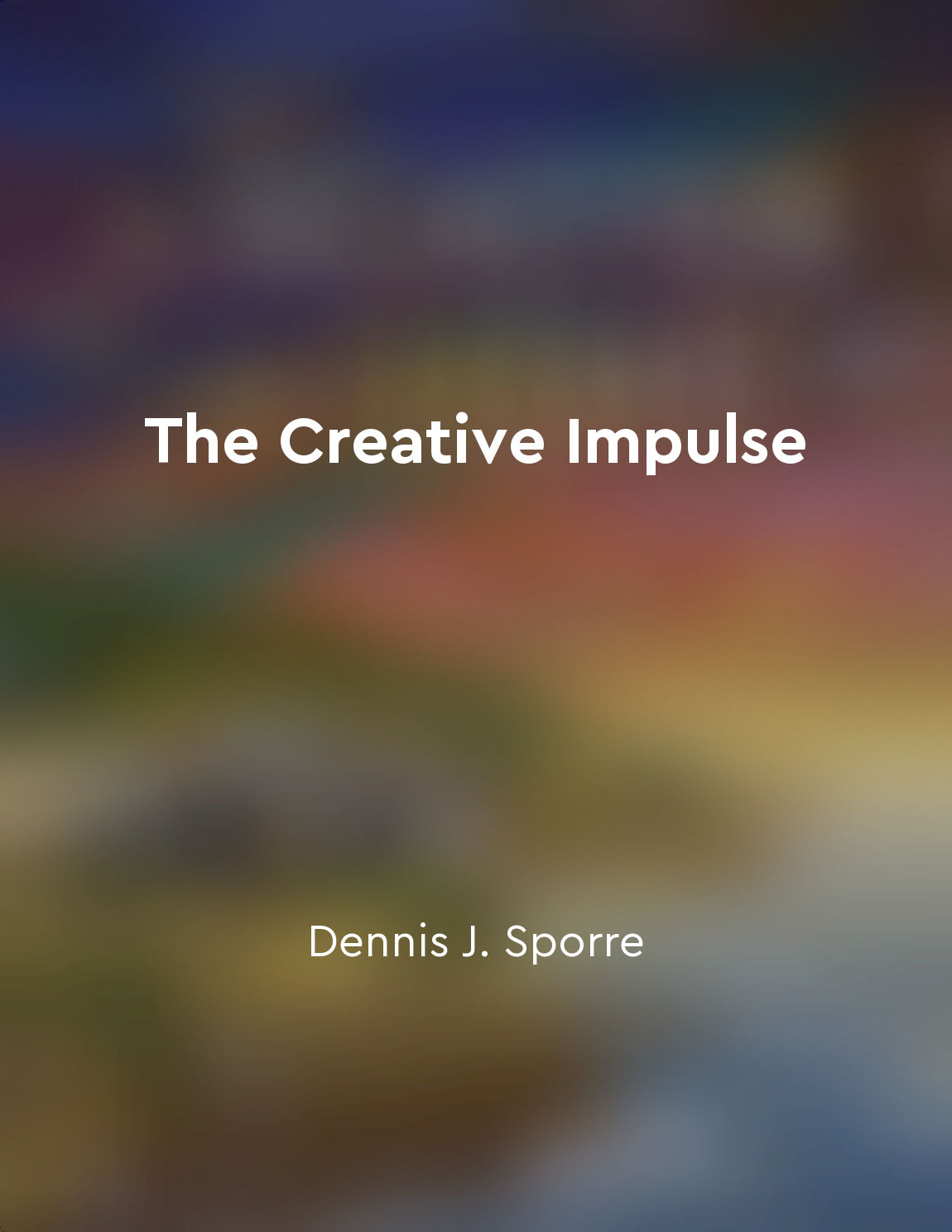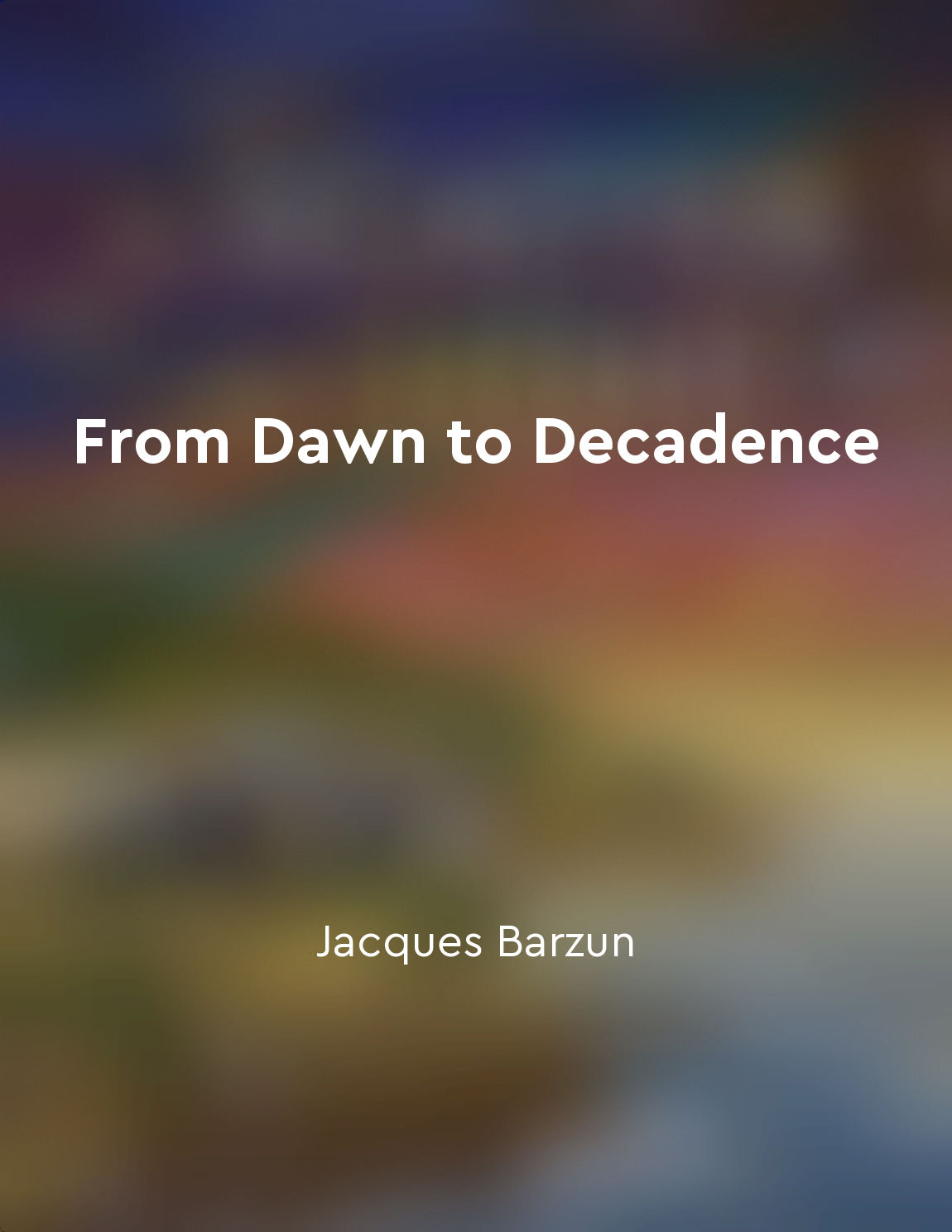The decline affects art and philosophy from "summary" of The Decline of the West by Oswald Spengler
The decline of a culture is not limited to its politics or economy; it extends to every aspect of its existence. Art and philosophy, which are often seen as the highest expressions of a civilization, are deeply impacted by this decline. As the culture loses its vitality and creative energy, so too do its artistic and philosophical endeavors suffer. Art, which is a reflection of the soul of a people, becomes increasingly shallow and derivative in a declining culture. Instead of exploring new ideas and pushing the boundaries of expression, artists fall back on tired formulas and imitate the works of the past. The vibrancy and originality that once characterized the art of the culture are replaced by a sense of stagnation and decay. Similarly, philosophy, which seeks to understand the fundamental truths of existence, loses its vitality in a declining culture. Instead of engaging in deep and meaningful inquiries, philosophers become mired in trivial debates and intellectual gamesmanship. The profound insights and wisdom that once flowed from the philosophical tradition are replaced by superficiality and confusion. In a culture in decline, both art and philosophy become mere shadows of their former selves. They lose their ability to inspire and uplift, becoming instead symptoms of a civilization in decay. The decline of art and philosophy is not merely a side effect of cultural decline; it is a central indicator of the spiritual malaise that afflicts the society as a whole.- The decline of art and philosophy is a reflection of the decline of the culture itself. As the vitality and creativity of the people wane, so too do their highest cultural achievements. The fate of art and philosophy in a declining culture serves as a warning to future generations about the dangers of spiritual and intellectual complacency. Only by recognizing and addressing the root causes of decline can a civilization hope to revitalize its artistic and philosophical traditions.
Similar Posts

Creativity thrives in an environment that encourages risktaking
The cultivation of creativity is dependent upon the willingness to take risks. When individuals are encouraged to step outside ...
Etic perspective provides an outsider's view of culture
From the etic perspective, culture is seen as an objective reality, a system of meanings that can be deciphered from the outsid...
The decline affects all aspects of society
The phenomenon of decline is not limited to a single domain or sector of society. Rather, it is a pervasive force that permeate...

Education and art further widened the gap between individuals
The introduction of education and art into society has had a profound impact on the widening gap between individuals. Education...
Artistic vision can transcend time and place
Throughout history, certain artists have possessed a unique ability to create works that seem to exist outside of the constrain...
Society is in decay
The idea that society is in decay is not a novel one. Throughout history, civilizations have risen and fallen, each one going t...

The possibilities and limitations of decadence
The concept of decadence encompasses both potential for innovation and decline. Decadence carries within it the seeds of renewa...
Culture shapes society
Culture is not simply a collection of artistic expressions or intellectual achievements. It is the very essence of a society, s...

